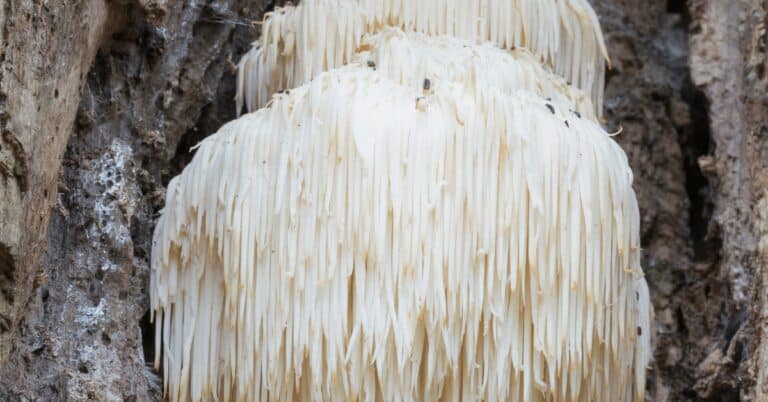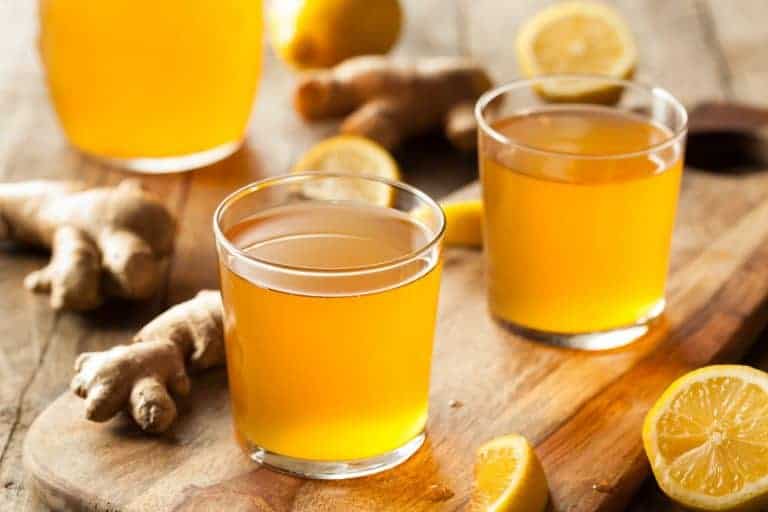Forget Animal Broths, Try Mushroom Broth!

If you want to try something outside of the usual bone, chicken, or beef broth, mushroom broth is an excellent way to leverage all of the health benefits and delicious flavors of our fungi friends.
In this article, we will explore the health benefits of mushroom broth and how to easily make it home using several different methods.
The Health Benefits of Mushroom Broth
Broths are a versatile vehicle for various culinary dishes, and mushroom broth is especially ideal to use for its various health benefits. Medicinal mushrooms have been used for centuries in Asia, where they are commonly consumed in meals and in tea form. Only relatively recently has modern biomedical research begun to delineate all of the surprising benefits these mushrooms provide for our brains and bodies.
Mushroom Broth is vegan-friendly
Neither plants nor animals, mushrooms fit the bill as a vegan-friendly broth while in no way shortchanging the savory flavors that animal-based broths provide. Thanks to their glutamate and guanylate content, mushrooms are loaded with nutty, umami flavor. Known as our “fifth taste receptor”, umami is responsible for providing dishes their flavorful, savory flavor. In general, the darker the mushroom, the more umami flavor it can offer. Shiitake mushrooms are known to provide a huge boost of earthy, umami flavor. This is especially true when they are used in broths in dried form, which boosts their guanylate content even further. Other mushrooms high in umami include portobello mushrooms, button mushrooms, and crimini mushrooms.
The meaty textures of these mushrooms also make them the perfect meat substitute for vegans and vegetarians. When added to broths, they can effectively replace any meat ingredients while soaking up the rich flavors in the broth. Portobello and lion’s mane are two great meat-substitute mushrooms that provide meaty, striated textures to any broth-based dish.
Mushroom Broth is low in fat, sodium, and calories
Homemade mushroom broth is very low in fat, in fact, it is almost zero. One cup of white button mushrooms have only a mere 0.2g of fat, and one cup of shiitakes have only 0.1g of fat. This makes it a great option for anyone that is looking to easily adopt low-fat dishes into their diet.
The high umami found in mushrooms works to counterbalance any saltiness, boosting flavor while reducing any need for extra sodium. Mushroom broth can have as low as 20mg of sodium per 1-cup serving. This makes mushroom broth an attractive option for hypertensive individuals or others who are trying to keep below the recommended 1500mg sodium per day maximum.
Some broth recipes call for sea salt (about a tablespoon), making them upwards of 100mg of sodium, but this is of course optional. Lower-sodium tamari can also replace salt and still add a great dose of umami and flavor. In general, homemade broths are much more flexible than store-bought varieties, which can have upwards of 500mg of sodium per one-cup serving.
Mushroom broths are also very low calorie, coming in between 5-25 calories. This is because nearly 90% of mushrooms are water by weight, which means the broth is mostly water. This makes them very keto-friendly and a great choice for anyone looking to reduce calories in general.
It has lots of vitamins and minerals
Mushroom broths are a very efficient way to absorb the high nutrition content of mushrooms.
Mushrooms are a good source of many essential vitamins and minerals.
The broth is a good source of B-complex vitamins. This includes thiamine (B1), riboflavin (B2), niacin (B3), pantothenic acid (B5), folate (B9), and cobalamin (B12). These support healthy skin, a healthy nervous system, and are used to provide energy by breaking down fats, proteins, and carbs.
Mushrooms that have been treated with UV light or grow in the wild also have over 100% DV of vitamin D (specifically D2), which is associated with bone health, cellular growth, and many other important bodily processes.
It is also a good source of copper and selenium. Copper is crucial for making red blood cells and keeping the bones healthy, while selenium is a potent antioxidant and important for immunity and fertility.
Mushroom broth has high levels of potassium. Potassium is crucial for managing cholesterol levels and keeping blood pressure normalized. Including more potassium in your diet can lead to a reduced chance of heart disease and stroke.
It’s packed full of antioxidants
Antioxidants prevent oxidative stress in our cells by neutralizing free radicals, a natural byproduct of chemical processes that are associated with many human diseases.
The antioxidant levels found in mushrooms vary based on the type of mushroom. The common button and portobello mushrooms have the lowest antioxidants while wild mushrooms such as shiitake, maitake, and oyster have higher amounts. Boiling mushrooms reduces the antioxidant content of mushrooms more than grilling or sautéing, but this can be minimized by reducing the heat and duration of the boil.
Mushrooms have very high levels of ergothioneine and glutathione, two “mega-antioxidants” that help prevent cellular damage and stimulate the immune system. Porcini mushrooms, in particular, have high levels of ergothioneine and glutathione. Chaga mushrooms have one of the highest antioxidant content among all of the medicinal mushrooms.
It supports a healthy immune system and gut
Medicinal mushrooms contain many bioactive polysaccharides, mostly of the beta-glucan variety, which flaunts impressive immunomodulating abilities. Reishi, lion’s mane, maitake, shiitake are all adaptogenic mushrooms that possess potent immune-stimulating bioactives that support healthy immunity and can help ward off infections. Recent studies are even showing beta-glucans can help prevent cancer and support healthy immunity during chemotherapy.
Shiitake mushrooms have an active polysaccharide called lentinan. This has been extensively studied for its immune-strengthening effects. Reishi, or lingzhi, has been known as a mushroom of spiritual potency. It has been used for millennia in Ayurvedic and Traditional Chinese Medicine. This mushroom is one of the most potent immunomodulating mushrooms, and many scientific studies have shown that extracts of this mushroom increase T-cell activity and increase cytokine production to fight tumors, infections, and support immunity during flu season.
Turkey tail, Reishi, Lion’s Mane, Chaga, and others support a healthy gut and microbiome. This helps prevent systemic inflammation, leaky gut, and may alleviate symptoms of gastrointestinal disorders such as IBS and gastritis. Medicinal mushrooms like Reishi may also favorably alter gut bacteria, thereby promoting a well-diversified gut of beneficial microbes. These probiotics work in conjunction with our immune system and central nervous system to support the good health of our brain and body.
Making Mushroom Broth at Home
Mushroom broth is a versatile vehicle for soups and stews and can boost the flavor and nutrition of grains and pasta dishes when used instead of water. The homemade broth has a shelf life of about 3-5 days.
Making your own broth is an excellent way to use mushroom trimmings and stems (especially those woody shiitake stems) that wouldn’t otherwise be used in a sauté.
Additionally, making your own is very easy! Since you’re not trying to wring collagen from bones like in bone broth, mushroom broth does not need to be simmered for days. Simmering for just a few hours is all that is needed.
A simple mushroom broth recipe to get started
- Fresh mushrooms (scraps or whole chopped)
-4 large reishi slices, 2 cups fresh shiitake, 2 cups fresh maitake (half the amount if dried)
- Herbs and spices (1 tablespoon per ingredient)
-onion powder, fennel, miso paste, ginger, garlic, paprika, oregano leaves
- Aromatic veggies (1 cup per ingredient)
-red onion, carrots, celery
- 6 quarts of water
- Optional 1tbspn of sea salt or tamari
-Place all ingredients in a slow cooker (instant pot works great) on low.
-Cook for three hours, stirring every hour. Strain contents through a sieve and enjoy hot or cold.
Dried mushrooms can be added as a mushroom powder or rehydrated as a whole mushroom. This adds extra umami flavor. Here is an excellent recipe to make your own mushroom powder at home. You can also buy organic mushroom powder online. Just add up to 1 tablespoon of powder per cup of water to make one cup of highly savory broth.
2 tablespoons of wakame flakes can be optionally added as well. Wakame is a dark green seaweed that is commonly used in Japanese soups and broths. It is high in iodine and may support healthy weight and thyroid function.
Final Thoughts
Mushroom broth is an easy and effective way to start including more mushrooms in your diet. It has all the savory flavor of traditional animal broths and is even more nutritious.
Common store-bought mushrooms have plenty to offer in terms of flavor and nutrition, incorporating medicinal mushrooms into your broths will support nearly every aspect of a healthy body and brain. Try them dried or in powder form for an extra umami boost that makes it difficult to go back to animal-based broths.
Finally, while the store-bought mushroom broth is still a nutritious option, the high sodium content and lack of flexibility make them less versatile in the kitchen. They may not the best choice for those who are watching their salt intake or want to maximize the health benefits that medicinal mushroom-based broths can offer.






